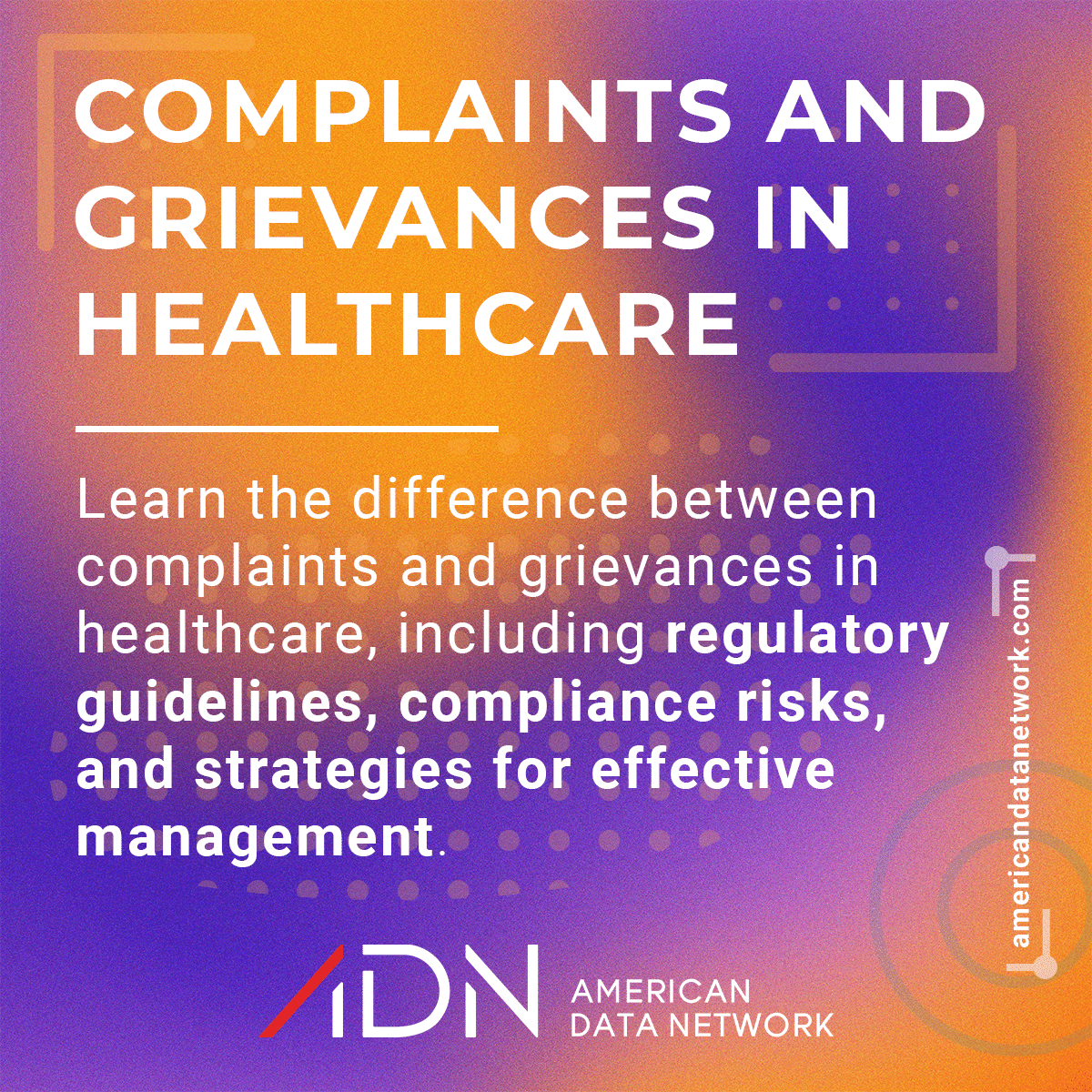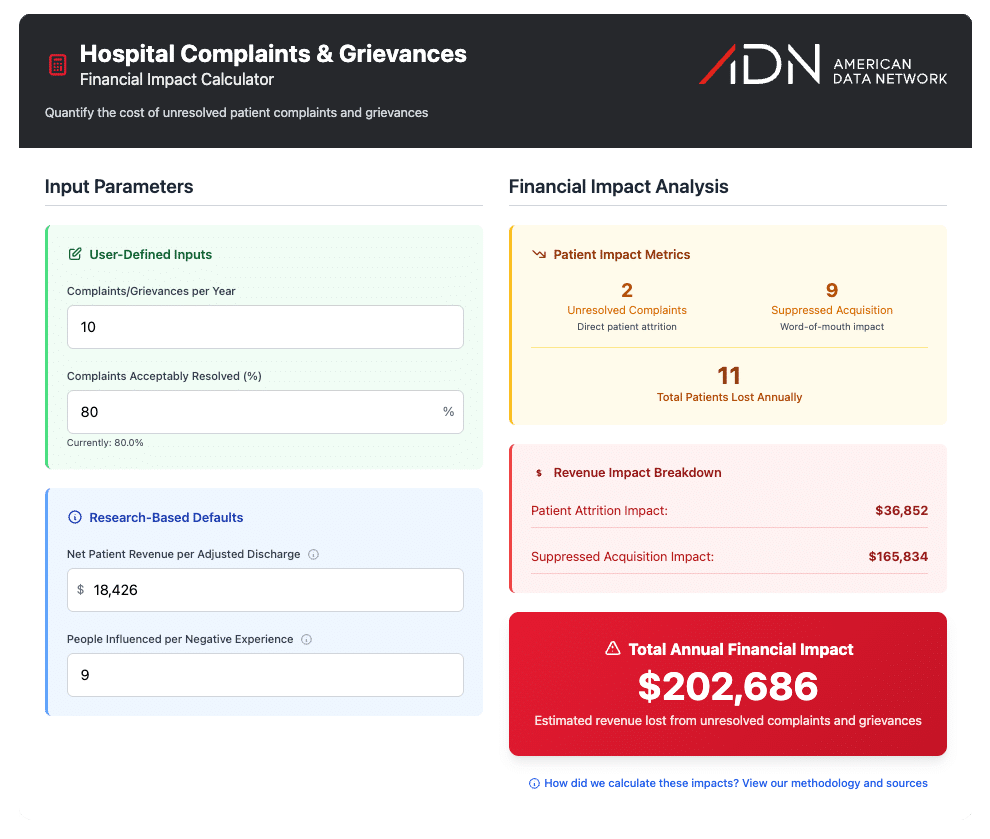Complaints and Grievances in Healthcare: Understanding the Key Differences and Requirements
Discover the essential differences between complaints and grievances in healthcare, why understanding them matters for regulatory compliance, and how effectively managing patient concerns can boost patient satisfaction and hospital quality.
⏰ 4 min read
Table of Contents
While hospitals aim for excellent patient experiences, complaints and grievances in healthcare settings inevitably arise. Healthcare quality, safety, and risk management professionals must understand the critical difference between grievances and complaints to effectively manage these concerns and remain compliant with regulations.

Complaints and Grievances in Healthcare: What’s the Difference?
Knowing the difference between grievance and complaint in healthcare is the foundation for effective management.
Complaints are issues that can usually be resolved promptly (within 24 hours) by immediate staff, such as nurses, administrative personnel, or patient advocates. Complaints typically don’t require written responses. Examples include:
- Difficulty sleeping
- Poor communication
- Environmental concerns, like room temperature or noise
- Lack of courtesy from staff
Grievances are more serious, typically formalized in writing or raised verbally but requiring further investigation. According to the Centers for Medicare and Medicaid Services (CMS), grievances often involve issues such as:
- Persistent difficulties in obtaining appointments or access to care
- Disrespectful or rude behavior by doctors, nurses, or hospital staff
- Alleged patient abuse or neglect
- Patient rights violations
Understanding and properly categorizing patient issues ensures appropriate responses and helps hospitals maintain compliance with regulatory requirements.
Note: A complaint may escalate into a grievance if the patient, family member, or representative feels the concern was not adequately resolved or expresses deeper dissatisfaction. In such cases, even issues initially treated as routine complaints must be documented and handled according to the hospital’s formal grievance process.
Regulatory Requirements for Complaints and Grievances in Healthcare
Hospitals must meet specific regulatory standards when managing complaints and grievances in healthcare. Non-compliance invites regulatory scrutiny, particularly from CMS. Essential CMS and Joint Commission requirements include:
- Establishing processes for prompt resolution of patient complaints and grievances.
- Ensuring hospital grievance policies are approved by the governing body.
- Clearly communicating grievance filing procedures to patients.
- Defining timeframes for grievance resolution (typically within 7-10 business days).
- Providing patients with timely written notifications outlining actions taken.
Additionally, hospitals must comply with applicable federal regulations, such as OCR Section 1557 of the Affordable Care Act (ensuring nondiscrimination and accessibility), as well as the specific standards set forth by their accrediting body:
- The Joint Commission: standard RI.01.07.01.
- DNV: Accreditation standards incorporating ISO 9001 quality management principles and approved by CMS.
- CIHQ: Standards for Medicare participation, including grievance investigation, documentation, and timely resolution, as detailed in their Hospital Accreditation Standards guide.
Consequences of Non-Compliance with Complaint and Grievance Regulations
Failure to properly address complaints and grievances in healthcare can lead to serious consequences, including:
- Legal penalties and potential loss of licensing or accreditation.
- Damage to hospital reputation and patient trust.
- Increased regulatory oversight and scrutiny.
- Potential patient harm from unresolved issues.
Non-compliance diverts resources away from patient care toward legal defense and remediation, negatively impacting hospital operations (Healthcare Compliance Journal).
Are Complaints and Grievances Costing Your Hospital?

Unaddressed or poorly managed complaints and grievances not only risk compliance violations but also impose significant financial burdens. Quantify the financial impact on your organization using our interactive Complaints and Grievances Financial Impact Calculator. Identify your potential savings and redirect resources back to patient care.
Calculate Your Hospital’s Potential Savings →
Strategies for Effective Complaint and Grievance Management in Healthcare
Healthcare organizations should strive to resolve complaints informally and immediately when possible. Effective complaint management includes:
- Quick, professional responses to patient concerns.
- Standard response times for addressing common complaints.
- Sincere apologies and clear, empathetic solutions.
- Documentation for ongoing quality improvement efforts.
Grievances, requiring more formal handling, should follow a structured process:
- Clearly inform patients about their rights and grievance procedures.
- Ensure confidentiality and compliance with HIPAA.
- Train hospital staff thoroughly in grievance management.
- Conduct timely, thorough investigations, providing written responses to patients.
A typical grievance workflow includes:
- Patient contacts a dedicated grievance line or patient advocate.
- The grievance intake form is completed and forwarded to medical leadership.
- Medical leadership conducts an investigation, documenting findings.
- A written response detailing the investigation outcomes and resolution actions is provided to the patient within established timeframes (usually 7-10 business days).
Avoiding Common Pitfalls When Addressing Complaints and Grievances
To manage patient complaints and grievances effectively, hospital leadership must avoid common pitfalls identified by the National Institute for Health and Care Research:
- Offering insincere or defensive apologies.
- Excusing inappropriate staff behavior due to stressful environments.
- Engaging in overly defensive responses or debating irrelevant clinical details.
Using Complaints and Grievances as Opportunities to Improve Healthcare
Effectively addressing complaints and grievances in healthcare helps identify opportunities for improvement. As demonstrated in research from The Joint Commission Journal, systematically reviewing patient feedback can lead to meaningful enhancements in patient safety, quality, and satisfaction.
Streamline Your Complaints and Grievances Process
Simplify and automate the management of patient complaints and grievances with our intuitive, compliant software solution. Improve your hospital’s efficiency, compliance, and patient satisfaction.


